This blog entry is an internal exercise to organize the information in my head, absorbed over a month. But I also wrote it as an invitation to dialogue and reflection with those who wish to listen, observe, and understand what is happening in Argentina. I wrote it all in one go this Sunday, April 28, 2024. If there are inconsistencies, please forgive the author.
"Whoever has ears, let them hear" (Matthew 11:15)
Crypto in Argentine "techno-politics" and the distribution of narratives
Disclaimer* (yes, I'm anticipating): I always avoid giving opinions or mentioning political-party issues of Argentina in public or private. Not because I'm timid, but because any interaction like this moves the focus elsewhere, and here I am for technology (?). But in this context, reflecting on the crypto ecosystem without considering the Argentine political context is unsustainable. Or naive.*
The recent events in the Argentine crypto industry must be contextualized within the country's recent months. I think we can start by considering the 2023 electoral atmosphere. In this section, we could go further back, even: remembering Mateo Salvato, his positioning, and the visibility he had in national and international conferences and events, the message of "study programming," his book... Or even take the example of Santiago Maratea and his flirtation with the idea of creating a DAO for the management and transparency of his solidarity campaigns. But I think it's too broad and not necessarily "crypto." So let's focus on mid-2023.
So, let's go there. Suppose we evoke the political campaign of 2023, the primaries, and everything that happened before the general elections. In that case, we can see that topics like cryptocurrencies, blockchain, CBDC, regulation, taxation, and others were much more present than in other past electoral campaigns. This has multiple reasons. The most obvious one is the global maturation of the crypto ecosystem, enhanced by major players adopting the technology, alliances with educational and governmental institutions, etc. But it's also due to the candidates trying to understand the crypto space, its opportunities, and the possibility of attracting sympathy and votes to their platform. Capturing the youth vote, the entrepreneurial vote, and the need to update and add more axes to their proposals, beyond the traditional ones like health, economy, security, etc.
I'm not going to analyze because 1) I'm not a political scientist, and 2) I'm not so up-to-date due to the whirlwind of my work. But I would like to mention some pearls and repercussions installed in the collective unconscious of the crypto niche and perhaps, of a portion of the Argentine mainstream.
Massa, on one hand, pushing a Digital Peso. More than adding to his platform, I think it harmed by how it was presented. BowTiedMara analyzed it here.
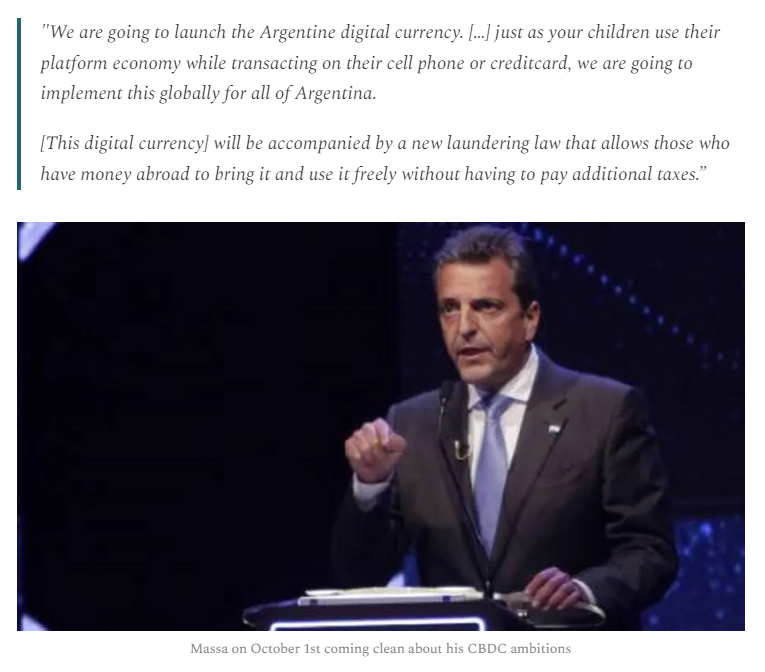
Another particular thing was the cycle presented by Santiago Siri (I can imagine the tension of some readers when reading his name at this moment, and the slight internal smile of his followers) leading an interview cycle called "technology & crypto with presidential candidates." Throughout this series, he managed to get the "presidential candidates" to talk about crypto topics. Throughout the different episodes, Larreta, Bullrich, Maslatón, and others dared to dialogue.
Surprisingly, the most viewed video is Grabois. I can't quite figure out if it's ironic consumption, if the base of Peronist voters became interested in that discussion, or a mixture of both.
The fact is that this initiative is one of the most successful (whether you like it or not) for reaching the general public and sparking these debates.
In this boiling atmosphere, and the subsequent victory of Milei in Argentina, I trace the beginning of a strong positioning of the crypto industry under the spotlight of the world stage. Milei's recent photo with Elon Musk is the ATH of the president's nod to technology and innovation, and crypto is not left out.
Now, while the big players discuss these issues, in the Argentine crypto underground "things are happening."
The Argentine crypto underground
Gone are the years when people came into contact with crypto thanks to Bitcoin. Not only adopting the asset but also adopting the philosophy. Very few raise slogans like "Be your own bank," "In maths we trust," "Only Bitcoin," etc. Those discourses have been relegated to purists and early adopters.
I was one of those who opposed KYC processes to preserve user privacy and freedom. But in those statements, there is also an implicit underestimation of the end user. If the user chooses practicality over privacy, there's nothing more to discuss.
I also see that several community actors understand that the onboarding actions they take from now on must be better thought out and more professional. And that they should no longer be aimed at the "niche," or the "niche within the niche," as I like to say when referring to workshops, X spaces, or any training/dissemination event with an intermediate-advanced target. Communication with universities, high schools, digital academies, and foundations is growing little by little.
There is much to expand on in this regard, but again, I will do so in other future articles.
The Mu co-working space: a successful experiment
The Mu co-working space was an initiative driven by an external force, not native to the Argentine ecosystem. And that made it a success, as it was a neutral space. The organizing group met several members of the Latin American community in Istanbul, where the last edition of Devconnect was held, the major Ethereum technical event where thousands of Ethereans pilgrimage in search of contacts, opportunities, work, and fun.
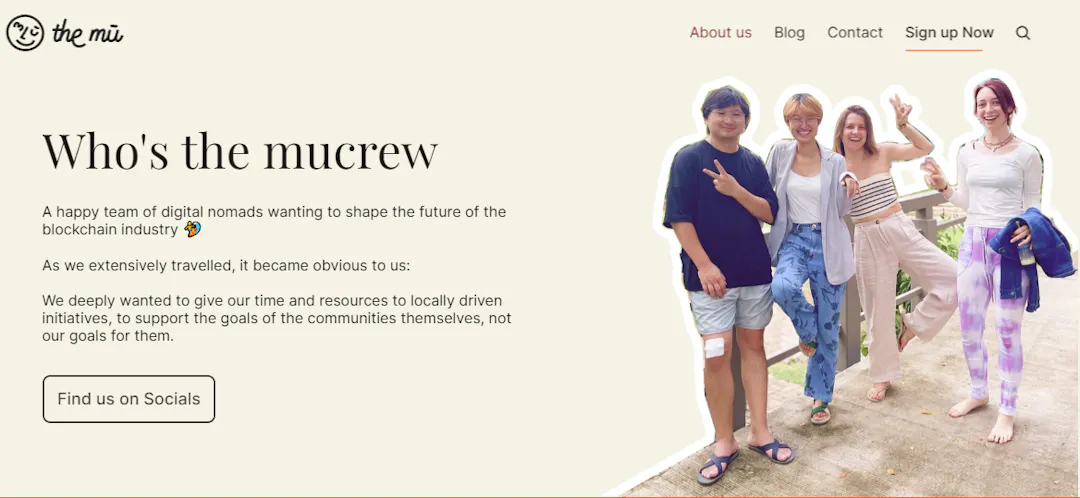
Mu was an open and free workspace for those interested in attending. Workers from platforms and protocols like Lido, MakerDAO, Arbitrum, ZKsync, Kleros, Scroll, Wallet Connect, Starknet, Wonderland, Kakarot, Lambda, Superfluid, LiFi, and a long list more were present and interacted with local users and builders. Several VCs were also orbiting the co-working space.
For some sectors, the space went unnoticed or as something distant that some groups didn't quite understand. But for those who worked there or attended the multiple events held, the atmosphere of creation was tangible.
https://x.com/andycreed0x/status/1784310451527934010
I think it's too early to talk about the repercussions and impact of the experience, but there are already some clear outputs. I'll mention 3 examples.
Example 1: Mu incorporated an Argentine into its team. This is Santiago Cristóbal from Solow.
https://x.com/themu_xyz/status/1778026593182507291
For this article, I believe the most relevant aspect is that Santiago has been actively collaborating in the discussions of "Operación Crecimiento." Due to scheduling issues, I haven't been able to get involved in these activities yet. But this is a phenomenon that I think we should keep an eye on. Strongly driven by Protocol Labs, the idea is to discuss among various actors in the crypto community what contributions can be made to solve Argentina's problems. These discussions started at Mu co-work and they are interested in continuing this process.
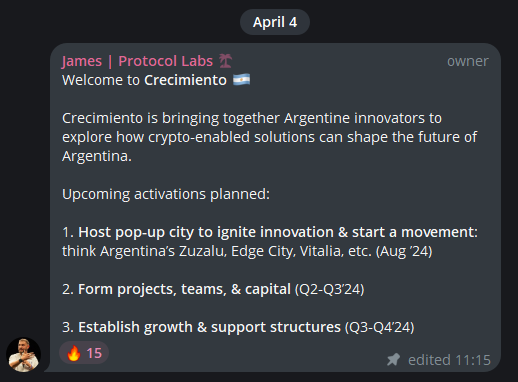
My stance is somewhat skeptical - a priori - when people who do not share Argentina's reality and history try to promote these types of spaces, but could be a good collective exercise to map needs, define the scope and field of action, and work accordingly. You can join the discussion group here.
Example 2: Fat Solutions genesis block at Mu: 4 friends resigned from their jobs in protocols / web3 platforms where they were in an employee relationship and attended the co-working space every day. They took the opportunity to do team building and connect with the different devrels and bizdevs who came to Mu, looking for new connections and clients. If Voltaire House gave birth to firms like Open Zeppelin, Decentraland, HardHat, and other Ethereum / web3 giants, perhaps the guys from Fat Solutions will surprise us in two years. For the Argentine crypto ecosystem to give birth to great projects, as it did a few years ago, we must create the hotbed, the breeding ground.
Example 3: many of the foreigners who came to Mu decided to stay and live in Argentina. From the most enthusiastic, who are processing their residency, to those who decided to move from an Airbnb to a temporary rental for six months. Experiences are untransferable, and only those who experienced firsthand the work and non-work climate of these weeks will understand how a person can decide to change their life based on a co-working space.
The ‘cryptobros’ in the Argentine FinTech Chamber
The title is a joke, and I trust that the subjects alluded to would understand this when reading these lines. Far from parodying this situation, I find this step highly positive. These are pioneers who have dedicated many years, money, and energy to contribute to laying the foundations for crypto adoption in Argentina through their exchanges.
https://x.com/jnptzl/status/1783510577198813307
Previously, the historic Sebastián Serrano quoted the official announcement of the Argentine FinTech Chamber announcing the new Board of Directors for the next two years.
https://x.com/sserrano44/status/1780019254735114392
The adoption that began thanks to word of mouth, pioneers to self-taught individuals, gradually became formalized in these exchanges that learned on the fly how to set up a business that would be resilient to Central Bank regulations, compliance requirements, and user needs.
These actors are part of the Commission now, and we will see what agenda is pushed. But I'm also interested in thinking about what other actors should be there. Or if they should be there.
The Lambda Boys, ZKsync, QuarkID, and the Government of the City of Buenos Aires
The Lambda boys deserve a separate article, maybe I'll do it in the future. Some are graduates of UBA, others, I don't know. They grow, and they grow strong. They are an important player locally and globally. They are proud, they are commercially aggressive, they are spicy, and they have what it takes.
https://x.com/fede_intern/status/1784203664044773485
For the attentive eye of CT (Crypto Twitter), the Lambda guys don't waste time: Opening offices in Buenos Aires, Barcelona, Hong Kong, the recent acquisition of Wine Bar, work meetings, and partnerships, everything is documented on X, and one of the spokespersons is Fede.
https://x.com/fede_intern/status/1784198394111488426
While Lambda works in infrastructure, one of its work links of Lambda includes ZKsync (Matter Labs), which kicks me to hook up with another topic: QuarkID team.
On its X profile, we can see the following description:
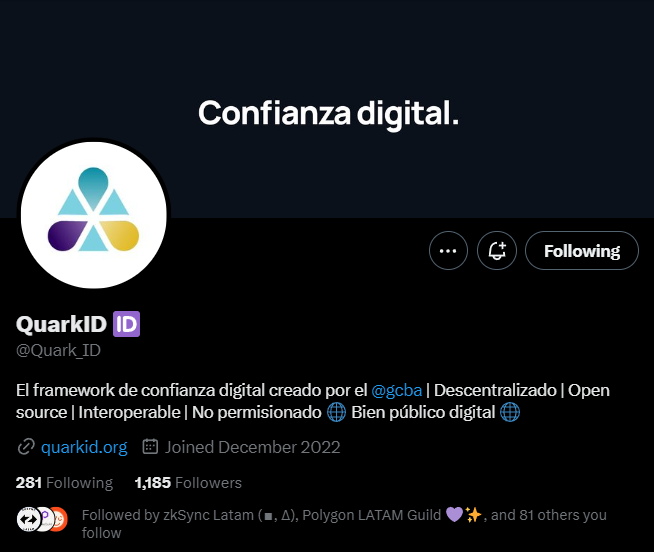
QuarkID works with ZKsync on a digital identity project. This is undoubtedly the most specific case where a niche technology ends up being on the phones of all Buenos Aires residents.
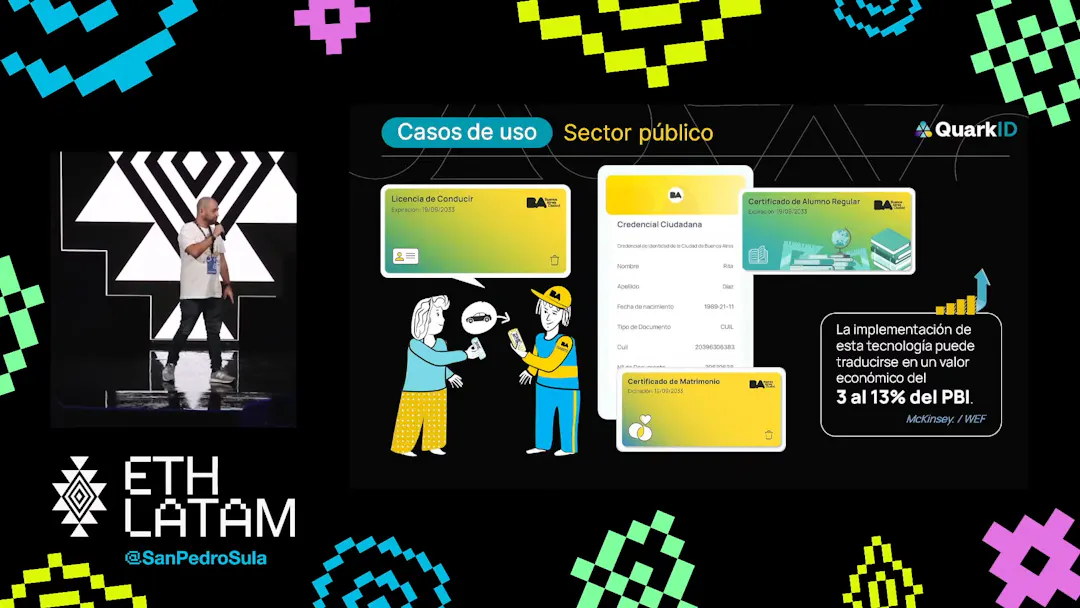
You can watch the video presentation of the use case at ETH Latam here. I was present at the talk in person (as I am an ETH Latam co-organizer) and the question section had several contributions and aroused the interest of the audience.
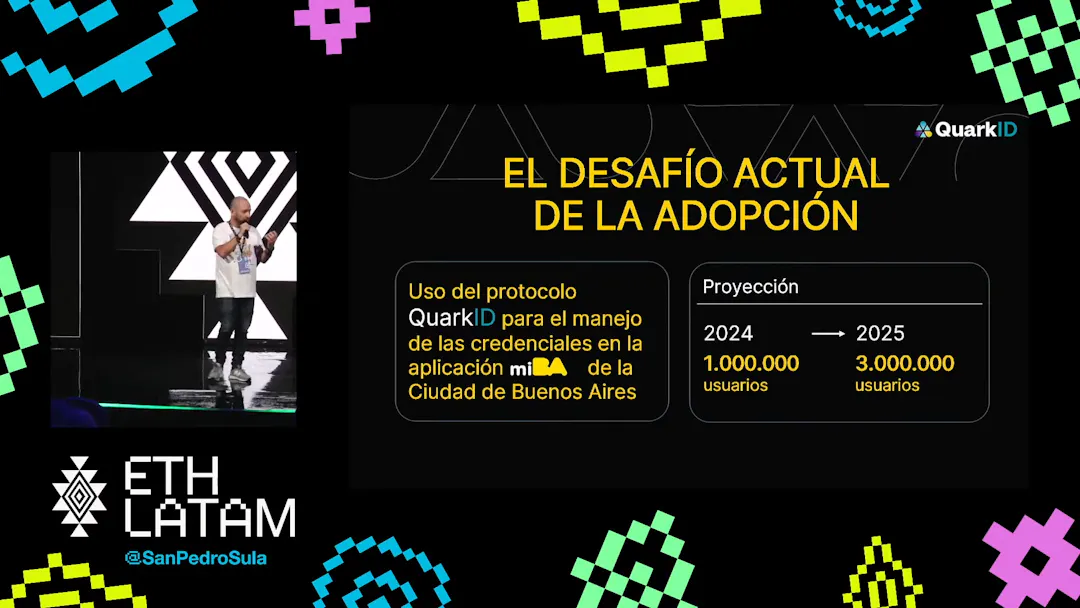
Did you know all this, anon? I omitted several things, I can keep exemplifying...
What feelings does this generate in you?
Things are happening. What are we going to do about it?
Do we have to do something about it?
I just wanted to mention some of the things I see happening. Some are very clear to me, others are very diffuse. Some trigger me, others give me satisfaction. But certainly, none of this leaves me indifferent.
https://x.com/LucioO1096/status/1780976398196216068
If I had to answer myself what my place is as an individual, as "Romina," as "Cryptochica" in the new Argentine crypto scenario... my answer would be:
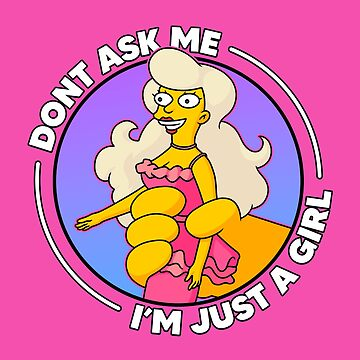
Next week I'll be digesting all of this. It's time to step on the ball and look at the field. But what is clear to me is that if I don't like something, the only remedy I have is (both individually and collectively) to get involved in the spaces I have access to and try to bring concerns, doubts, questions, and my contributions and those of the environments I frequent every day. And call on all builders, solo stakers, entrepreneurs, and users to open their eyes, activate their ears, and propose.
It's no longer about whether you use an exchange with KYC or not. It's no longer about whether you buy Bitcoin or not. Changes and policies with on-chain components will come that will touch on a personal level all Argentine citizens (not just crypto users). And we have to rise to the occasion. Or be prepared to accept without complaint the line that is drawn.
If you would like to discuss these topics, you can write to me here:
Thanks for reading me, my friend ☀️


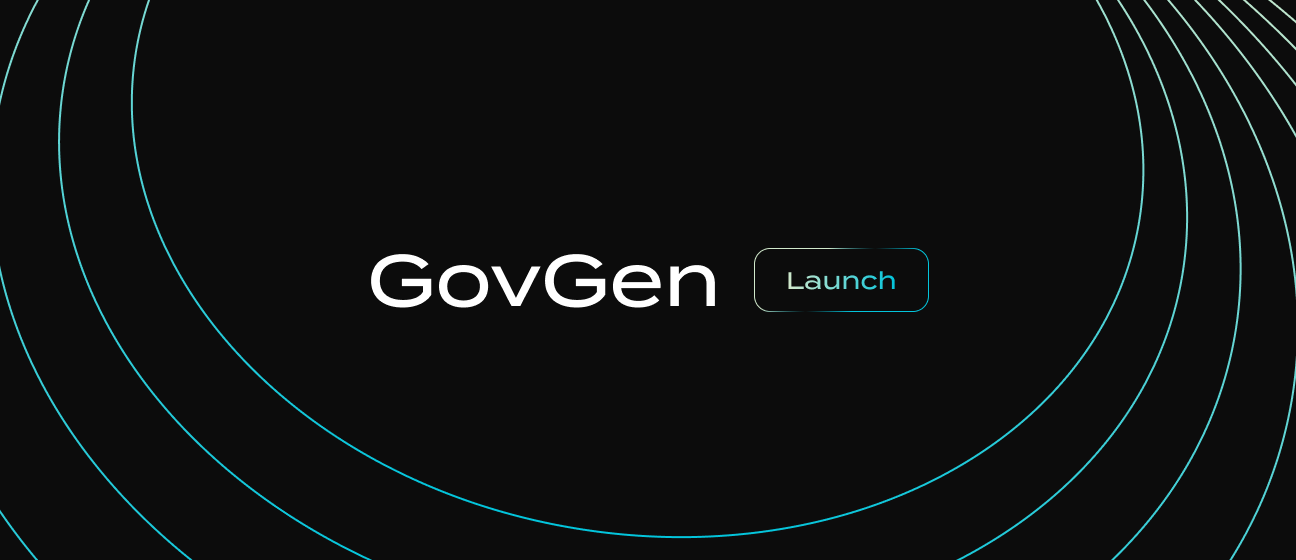

评论 (0)